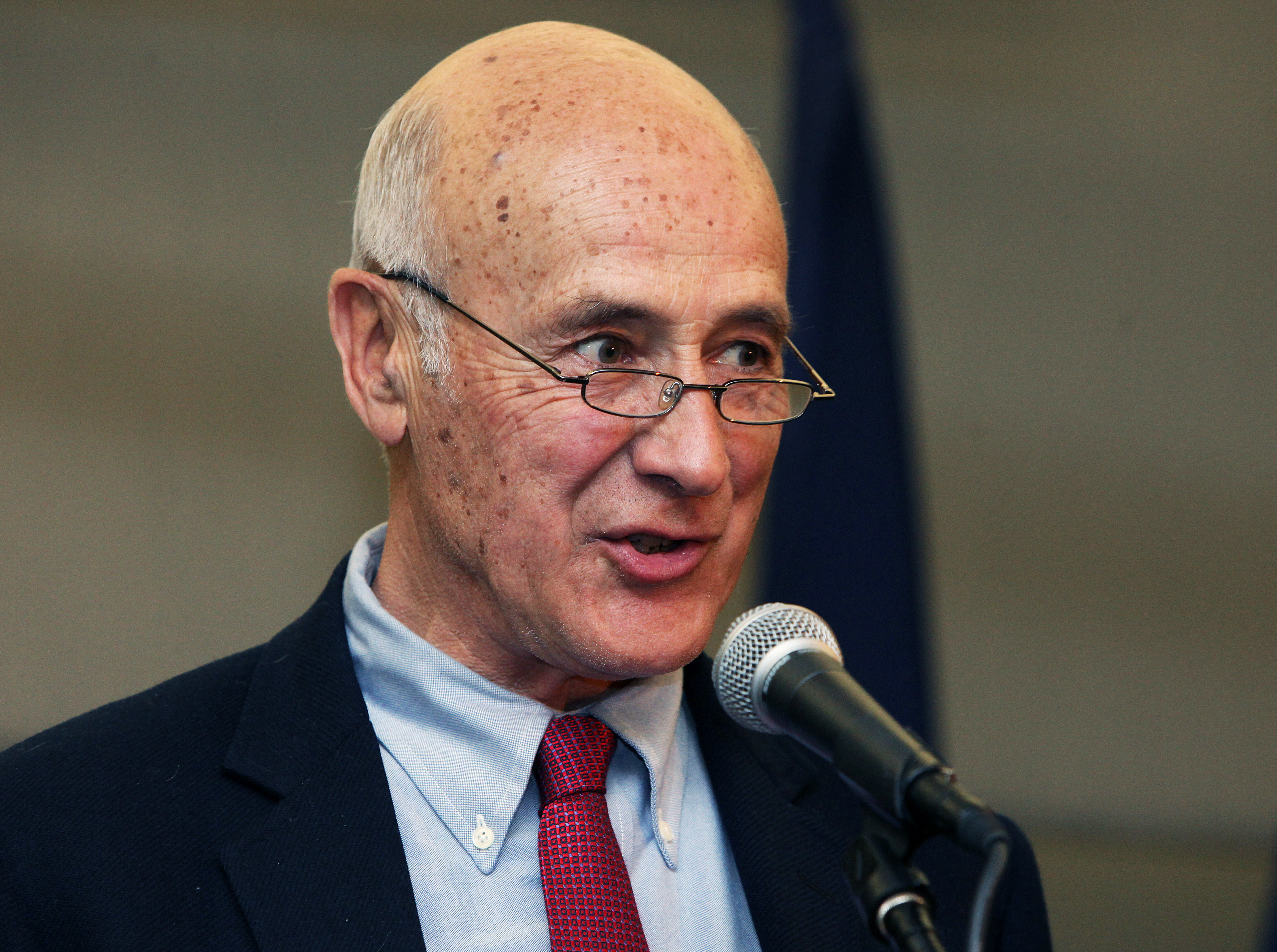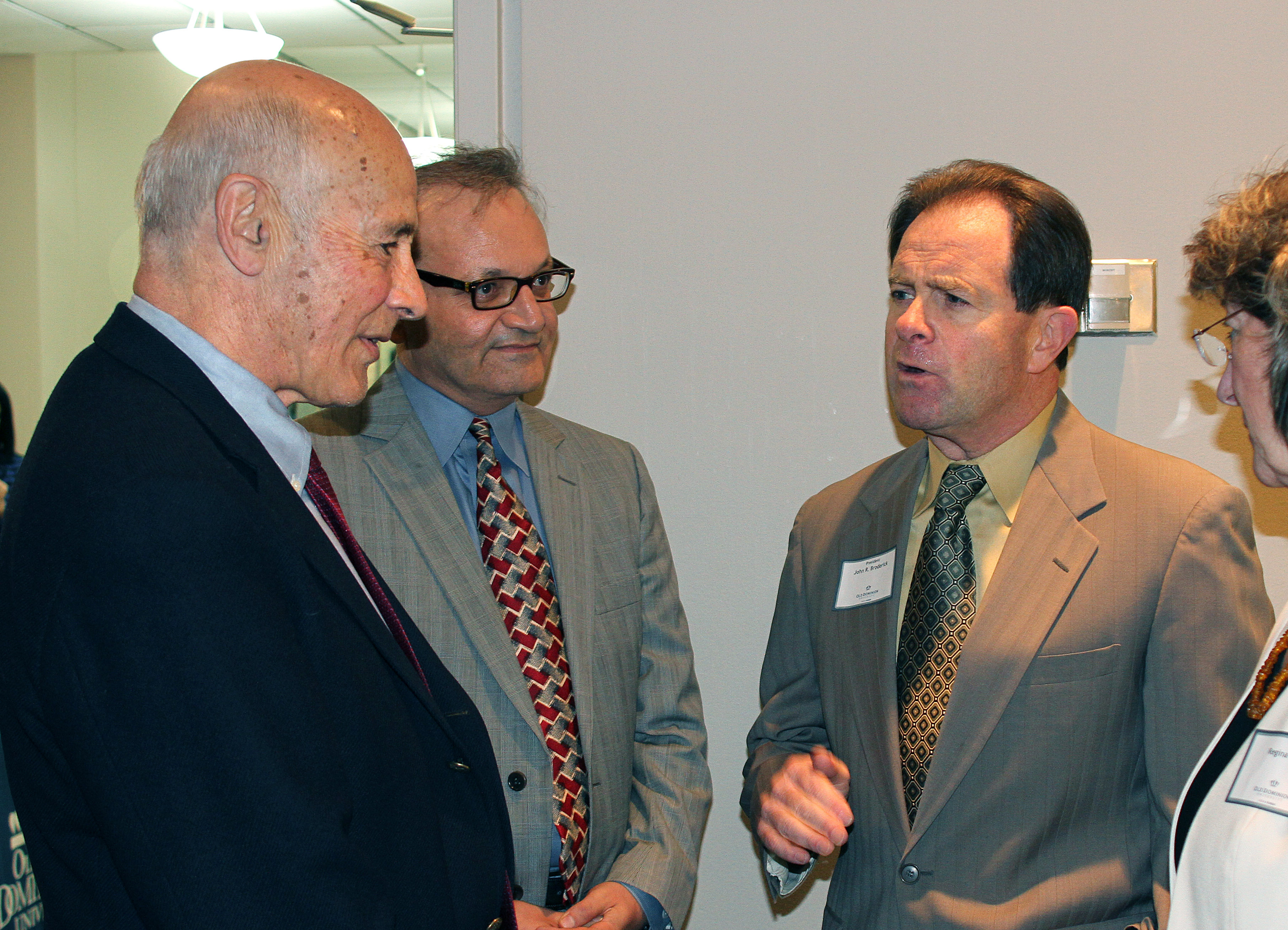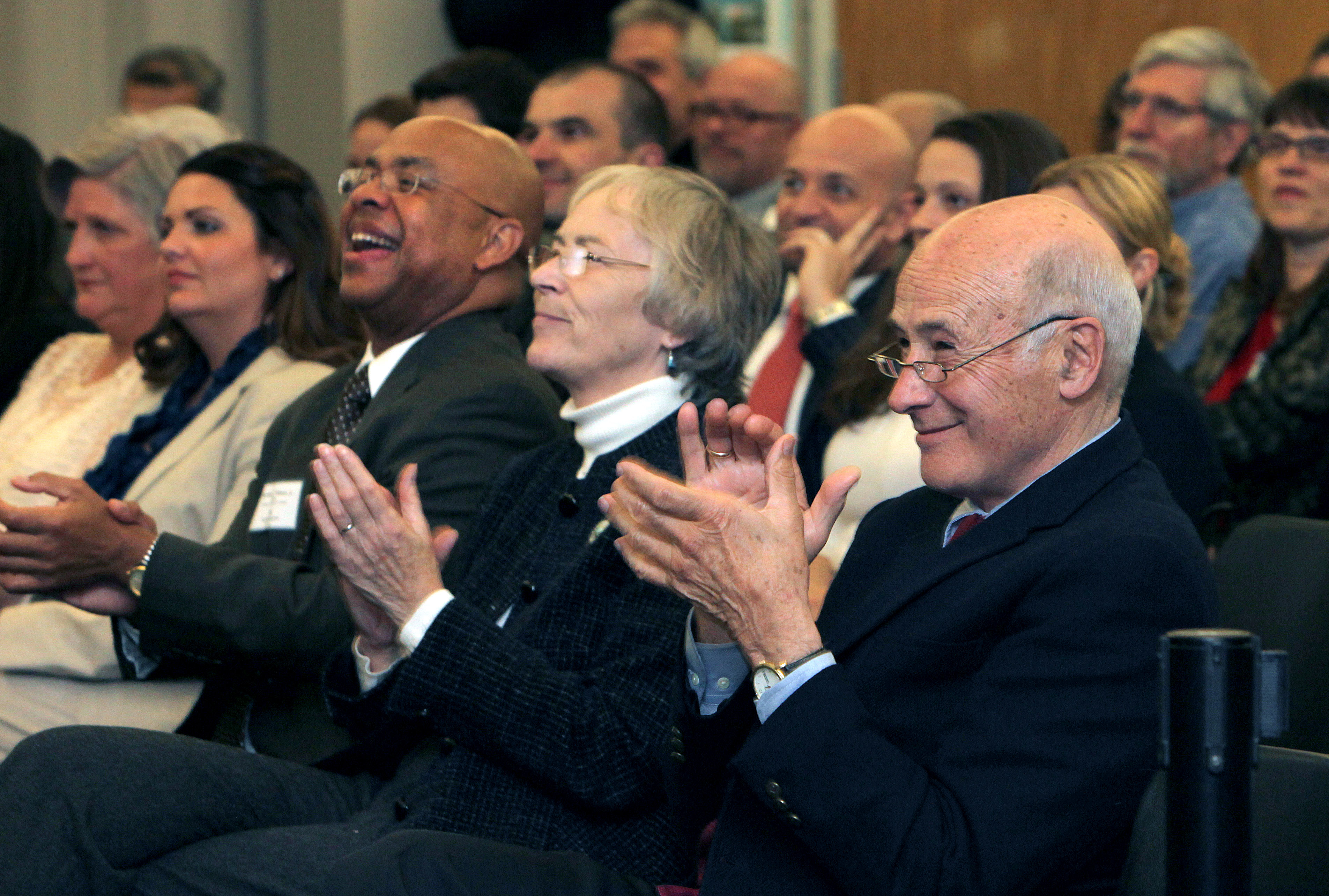ODU President’s Lecture Series: Harvard Professor Joseph Nye Draws Large Crowd
April 24, 2013
 Joseph S. Nye Jr.
Joseph S. Nye Jr.
 (L to R) Joseph Nye, ODU professor Steve Yetiv, ODU President John R. Broderick and ODU professor Regina Karp talk during a pre-lecture reception.
(L to R) Joseph Nye, ODU professor Steve Yetiv, ODU President John R. Broderick and ODU professor Regina Karp talk during a pre-lecture reception.
 (L to R) Dean Charles Wilson, of the ODU College of Arts and Letters, ODU Provost Carol Simpson and Joseph Nye during the lecture's introduction.
(L to R) Dean Charles Wilson, of the ODU College of Arts and Letters, ODU Provost Carol Simpson and Joseph Nye during the lecture's introduction.
How significantly did specific presidents impact the rise of the "American era?"
That was the theme of the latest installment of the Old Dominion University President's Lecture Series that featured Harvard professor, and American foreign policy expert, Joseph S. Nye Jr. The April 23 lecture, which was held in conjunction with the 20th anniversary of ODU's Graduate Program in International Studies, drew more than 250 people to Webb Center's North Cafeteria.
During his lecture, which focused on the balance of power in American politics and international relations, Nye analyzed the four phases of the "American era": the country's transition from isolationism into global politics at the start of World War I, entry into World War II, consolidation of post-WWII containment and the end of the Cold War with the Soviet Union. In this discussion, he pondered whether "American primacy was just in the cards or does the presidency matter?"
Nye walked the audience through the contributions of various American leaders, from Theodore Roosevelt, Franklin Delano Roosevelt, Woodrow Wilson, Harry Truman and Dwight D. Eisenhower to more modern presidents such as Ronald Reagan, George H.W. Bush and George W. Bush.
Nye concluded that while "transformational" presidents like Wilson and Reagan changed Americans' perception of their place in the world and forged new policies, "transactional" presidents - who were more interested in managing the nation's existing positions - were at times more efficient and ethical.
The approximately 45-minute lecture was followed by a wide-ranging question-and-answer session that touched on climate change, events like Pearl Harbor and the Boston Marathon bombing, and even Sigmund Freud's theory of "the narcissism of small differences" in the context of cultural radicalism.
In response to a question about the partisan "blockage" in Washington, Nye argued that much of the issue is rooted in the Constitution, which was designed to limit the growth of government.
"It is rare when you get the kind of consensus that can overcome checks and balances to get things done," he said. "This bitterness and divisiveness is not new."
Nye is a Harvard University Distinguished Service Professor and former dean of the Kennedy School of Government. From 1977-79, he served as deputy undersecretary of state and chaired the National Security Council Group on Nonproliferation of Nuclear Weapons. From 1993-95, Nye served in various positions that included: chair of the National Intelligence Council, which prepares intelligence estimates for the president, and assistant secretary of defense for international security affairs.
In a 2008 poll of 2,700 international relations scholars, Nye was listed as the most influential scholar on American foreign policy. Another poll, in 2011, rated him the fourth most influential scholar in international relations over the past 20 years, and Foreign Policy magazine named Nye among the "Top 100 Global Thinkers."
During his career, Nye has published 13 academic books, a novel and more than 200 articles in professional and policy-related journals. His most recent books include: "Soft Power," "The Powers to Lead" and "The Future of Power," which The Economist called "rigorous and convincing." Nye's newest book, "Presidential Leadership and the Creation of the American Era," will be published in May.
Nye is a fellow at the American Academy of Arts and Sciences, the British Academy and the American Academy of Diplomacy in addition to being an honorary fellow of Exeter College, in Oxford, England. He has been a recipient of the Princeton University Woodrow Wilson Award, the Charles Merriam Award from the American Political Science Association, France's Palmes Academiques and various honorary degrees.
Nye graduated summa cum laude from Princeton in 1958 and did postgraduate work at Oxford University on a Rhodes scholarship. He earned a Ph.D. in political science from Harvard, where he joined the faculty in 1964.
The ODU President's Lecture Series features speakers who share their knowledge, experiences, opinions and accomplishments. Past speakers have included scientists, writers, educators, historians, Pulitzer Prize winners and other prominent figures.

